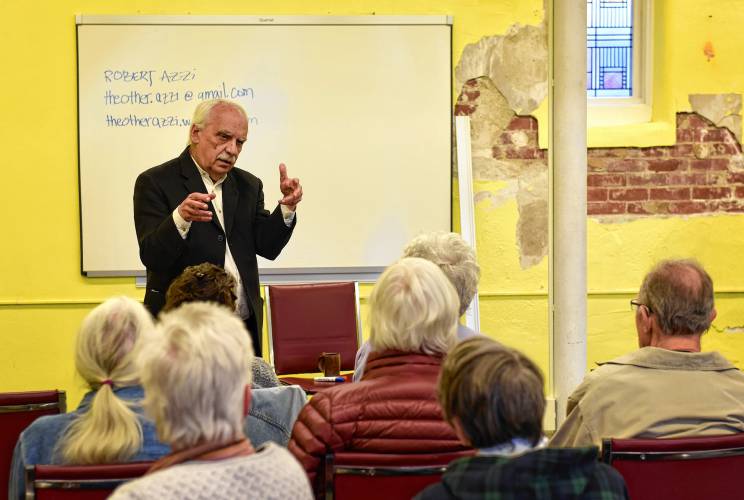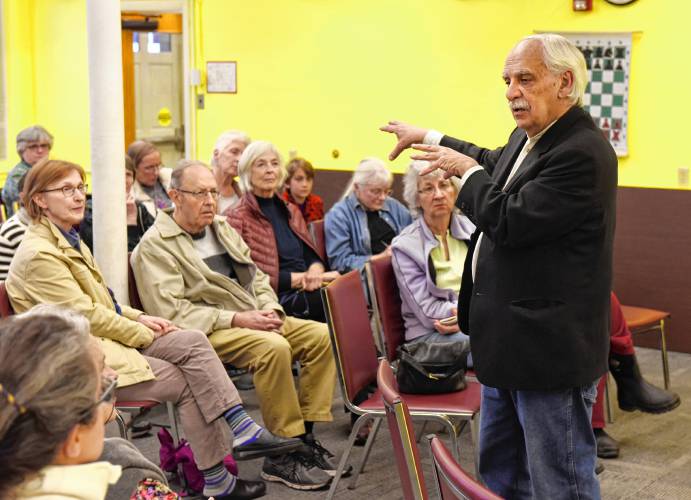Hawzah News Agency (New Hampshire, US) – A program called “Ask a Muslim Anything” prompted a colorful conversation Monday night at the Greenfield Library, touching on such popular topics as religious violence and gender inequality, and shedding light on the Quran and Islamic religion itself.
The Muslim answering the questions was Robert Azzi, who grew up in New Hampshire with Lebanese-American parents, then from the 1960s through the ’80s worked as a photojournalist in areas between India and North Africa, including Athens, Beirut, Cairo and Jeddah. Azzi’s parents were both Christian, and he converted to Islam as an adult when he was in the Middle East.
Azzi started doing “Ask a Muslim Anything” about three years ago, and since then has held it in libraries and other public places, mostly in New Hampshire.
The discussion at the Greenfield Library was typical of how the program often goes, Azzi said afterwards.
Early on, the conversation focused on the religious tradition and the different branches of Islam.
“(Sunni) is like a loose confederation of UCC and Unitarian Churches: a lot of local authorities meeting every two or three years for conventions to hammer out the hard issues,” Azzi said. “The Shia tend to be more like the Catholic Church, with a real hierarchy … It has to do with how to pass on the dogma and creed to the followers.”
Islamic religious violence was brought up. Azzi discussed it in terms of Muslims being portrayed as an “other” in mass media: “I would say that people like ISIS and Al Quaeda are not unlike the Klu Klux Klan, or not unlike the Westboro Baptist Church … But we hear about it because it fits a narrative that they (Muslims) are unlike us, and somehow we’re the targets of all this.”
“How come Muslims don’t condemn terrorism and violence? The reality is, there are thousands of condemnations daily of violence,” Azzi said. “The reason we don’t hear about them is, it doesn’t fit the narrative of the Muslim being other.”
There was also curiosity about the Quran and its relationship to the Bible. Next to the Quran, Muslims think equally highly of the Torah, the Psalms and the Gospels, Azzi said.
The big difference for readers is, where the Bible is made up mostly of stories, the Quran is not, which can make it harder to read, Azzi said.
“I say, if you want to read the Quran, go to the index and pick something you want to know about,” Azzi said. “Pick Adam and Eve, pick Mary, pick Jesus, pick Sodom and Gomorrah, pick something and let the Quran guide you. It’s a very circular approach. You won’t find one answer in one chapter about any one thing. But you can contextualize it through the whole experience.”
End.



